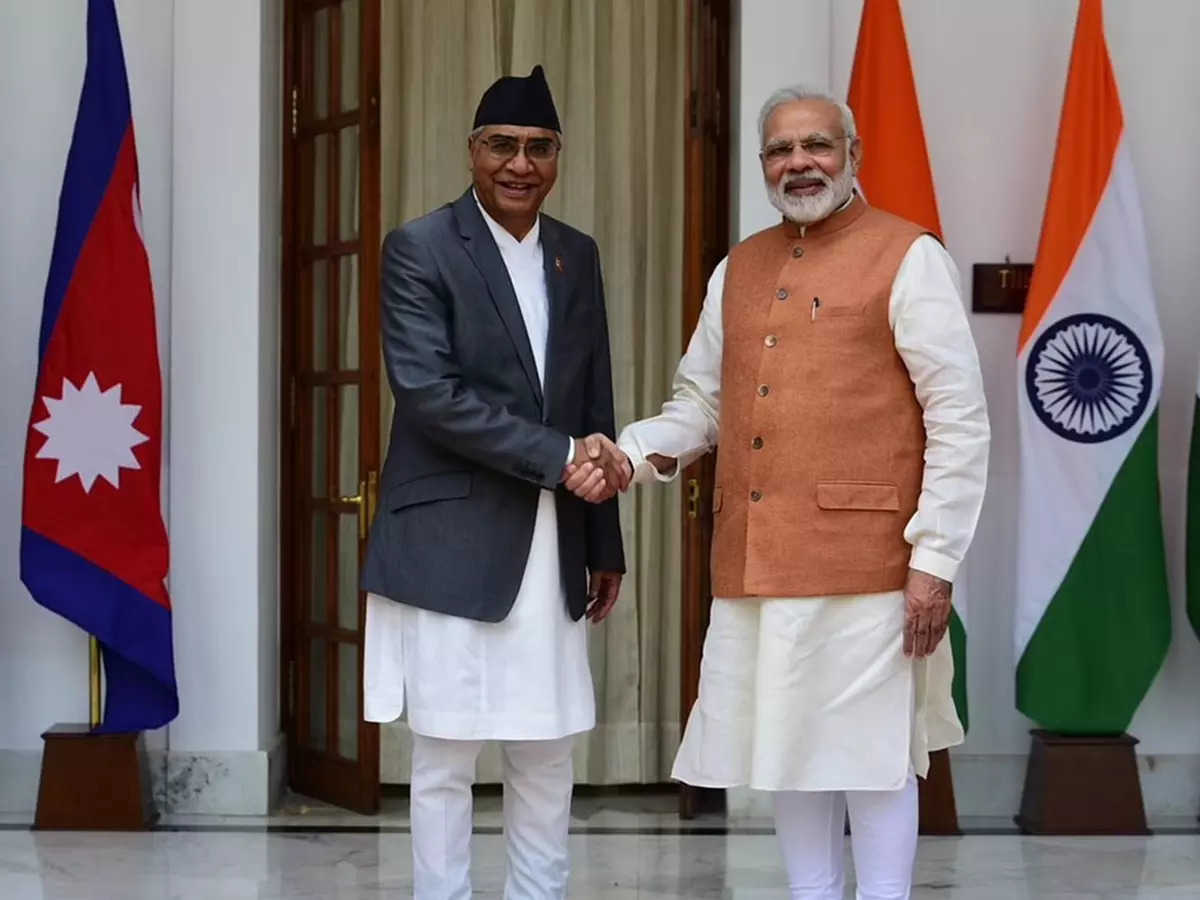Nepal and India have signed a memorandum of understanding (MoU) to jointly develop critical cross-border transmission infrastructure.
The agreement, formalised in Kathmandu on Tuesday, marks a strategic leap in bilateral power cooperation and is expected to significantly enhance the flow of clean electricity between the two nations. Signed by senior representatives of Nepal Electricity Authority and India’s Power Grid Corporation, the MoU paves the way for the construction of two high-capacity 400 kV transmission lines—Inaruwa-New Purnia and Dodhara-Bareilly—facilitating seamless electricity exchange across the eastern and western corridors of the two countries. The initiative follows the consensus reached at the 12th Nepal-India Secretary-Level Joint Steering Committee meeting held earlier in New Delhi. Both countries agreed to form separate joint venture companies, with Nepal holding a majority 51% stake in the company executing the project within its territory, and India maintaining the same share for the segment on its side. The remaining 49% in each case will be offered to the respective cross-border partner, reinforcing an equal-footed collaboration model.
According to officials from Nepal’s Ministry of Energy, Water Resources and Irrigation, this is not merely a diplomatic or infrastructural achievement but a critical move toward ensuring energy security and sustainability in the region. They emphasised that clean hydropower generated in Nepal will find a dependable export route to India, while India will gain access to reliable and renewable electricity to balance its growing energy demands in a climate-conscious framework. Officials from India’s Ministry of Power highlighted the agreement as a vital cog in South Asia’s broader energy connectivity roadmap, supporting the vision of transnational clean energy markets. The upcoming projects are expected to be aligned with the region’s commitment to transition towards net-zero carbon goals, with emphasis on green infrastructure, public-private cooperation, and grid stability.
Urban development specialists and energy transition experts see this agreement as a powerful symbol of regional synergy in the era of climate action. By enabling Nepal’s surplus hydropower—an environmentally friendly source—to power Indian states, the bilateral agreement directly contributes to decarbonisation of South Asia’s energy matrix. Environmental observers have long pointed to Nepal’s untapped hydropower potential as a critical resource for the region’s green transition. However, limitations in cross-border infrastructure had often constrained the full-scale implementation of these possibilities. This transmission line initiative is expected to change that narrative, creating long-term impact by strengthening both nations’ abilities to adapt to fluctuating climate demands while fulfilling their sustainable development goals.
Senior officials present at the MoU signing underscored the importance of the agreement not just in terms of power exchange but in deepening the two nations’ strategic, economic, and environmental partnerships. They also indicated that the construction phase will be guided by environmentally sound engineering practices, stakeholder inclusivity, and a commitment to gender-equitable employment generation in energy infrastructure. From a geo-economic perspective, this cross-border infrastructure aligns well with larger regional ambitions such as the BBIN (Bangladesh, Bhutan, India, Nepal) sub-regional initiative and the International Solar Alliance’s frameworks on cooperative energy exchange.
The move is expected to catalyse investments, reduce transmission losses, and create a dependable framework for balancing surplus and demand fluctuations across the power grids of both countries. For citizens, particularly in border towns, the promise lies in fewer outages, greater power reliability, and a boost to local economies through energy-driven industrialisation. The cross-border project thus marks a significant turning point in not only enhancing power infrastructure but also in reshaping the energy future of the subcontinent—one that is greener, more inclusive, and deeply collaborative.
Also Read : https://urbanacres.in/sri-lanka-rejects-india-land-link-proposal/


